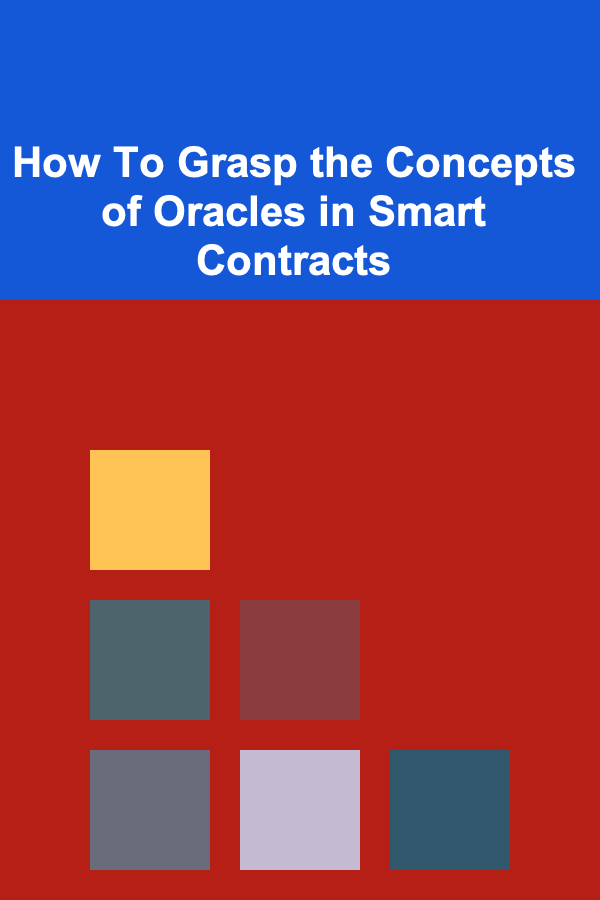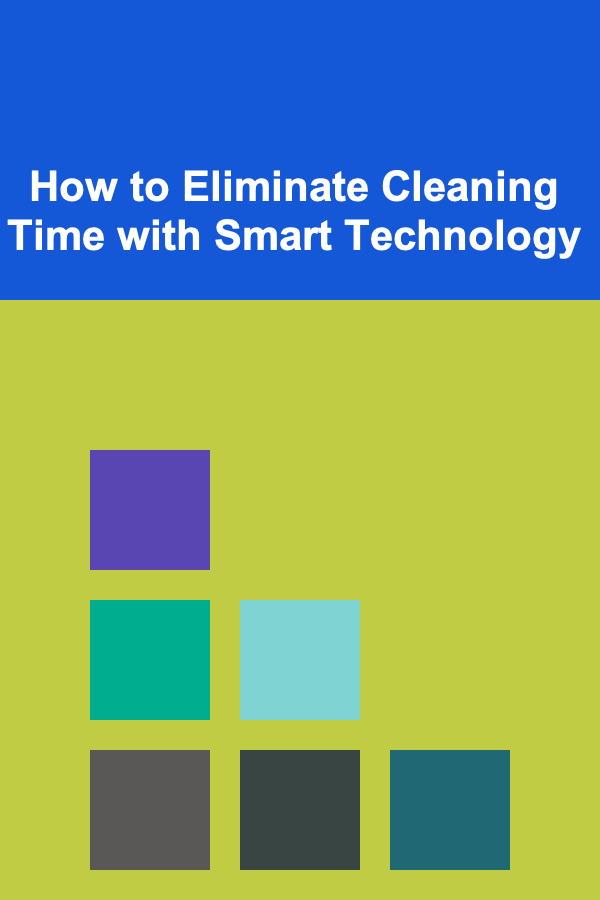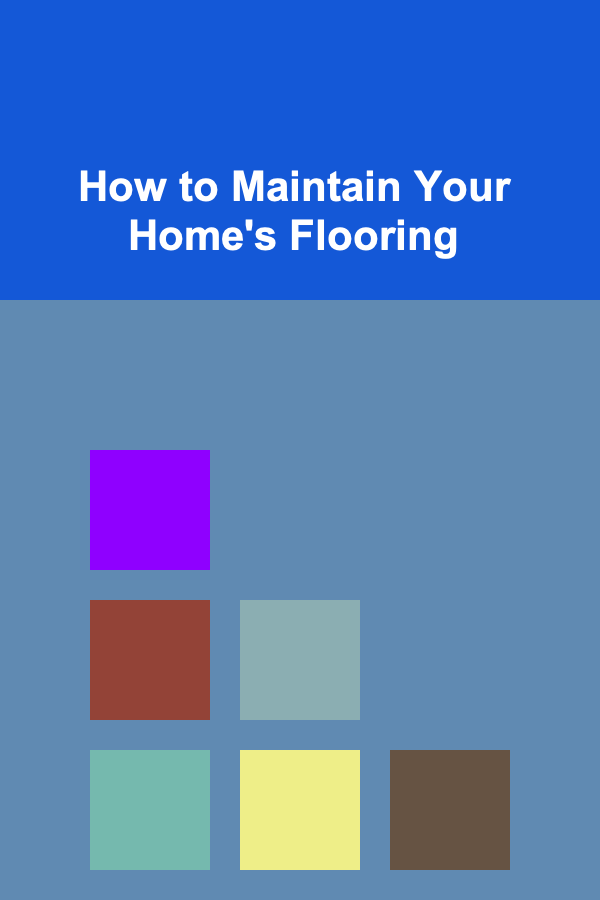
How To Grasp the Concepts of Oracles in Smart Contracts
ebook include PDF & Audio bundle (Micro Guide)
$12.99$8.99
Limited Time Offer! Order within the next:

Smart contracts have emerged as a transformative technology in the blockchain ecosystem. They automate processes, enforce contractual terms, and facilitate trustless transactions, removing the need for intermediaries in many applications. However, smart contracts, by their nature, are restricted to the data available within their blockchain network. This is where oracles come in.
Oracles are crucial for enabling smart contracts to interact with external data sources. Without oracles, smart contracts would be isolated, unable to process real-world information such as market prices, weather conditions, or even social media data. In this article, we will dive into the concept of oracles, how they work, and how they integrate with smart contracts to enhance their functionality. We will explore different types of oracles, their importance, and challenges that come with their implementation.
Introduction to Smart Contracts and Their Limitations
Smart contracts are self-executing contracts with the terms of the agreement directly written into code. They run on blockchain platforms such as Ethereum, enabling decentralized applications (dApps) that execute contracts automatically once predefined conditions are met. The main advantage of smart contracts is their ability to execute transactions automatically and transparently without requiring a trusted third party.
Despite their potential, smart contracts face significant limitations. These limitations stem from the fact that smart contracts are executed within the blockchain and are only capable of interacting with data that exists on the blockchain. They cannot access external data, such as real-world information, without an intermediary. This is where oracles become vital.
Oracles are essentially bridges between the blockchain and external data sources. They allow smart contracts to retrieve data from the outside world and make decisions based on that data. This ability to access off-chain data opens up a wide range of possibilities for smart contracts, from financial applications like decentralized finance (DeFi) to supply chain tracking and insurance claims.
Understanding Oracles in the Context of Smart Contracts
In simple terms, oracles are services that provide external data to smart contracts. A smart contract needs to interact with data that exists outside of the blockchain to function in the real world. Oracles solve this problem by bringing external data onto the blockchain in a way that smart contracts can understand and act upon.
The Role of Oracles in Smart Contracts
Smart contracts by themselves can only access and process data that is stored on the blockchain. This is fine for some applications, but many contracts require real-world data to function properly. For example, a smart contract used for a decentralized insurance policy might need access to weather data to determine whether a certain weather event has occurred, such as a hurricane, which triggers a payout.
Oracles provide a reliable and verifiable way for smart contracts to access this external data. They serve as intermediaries that gather data from outside the blockchain and submit it to the smart contract. This way, oracles enable smart contracts to perform actions based on real-world events.
The Oracle Problem
While oracles are essential, they introduce a new problem often referred to as the "oracle problem." This problem arises because oracles, by acting as intermediaries between the blockchain and external data sources, have the potential to introduce errors or biases. Smart contracts rely on oracles to provide accurate and trustworthy information, but if the oracle is compromised or faulty, the entire contract can fail or behave unpredictably.
Therefore, ensuring the integrity and trustworthiness of oracles is one of the key challenges in the adoption of smart contracts.
Types of Oracles
There are several types of oracles, each serving a specific purpose depending on the use case. Some oracles are centralized, while others are decentralized. Here's an overview of the different types of oracles.
3.1 Software Oracles
Software oracles fetch data from external APIs and services. These can include anything from financial data like stock prices to weather reports or sports scores. Software oracles access external web servers and retrieve data that is then provided to the smart contract.
For example, a software oracle can be used to provide a smart contract with the current price of Bitcoin or the exchange rate between two currencies. The oracle would call an external API to get this information and then send it to the smart contract.
3.2 Hardware Oracles
Hardware oracles connect the blockchain to real-world physical data. This can include data from sensors, RFID chips, or other devices that interact with the physical world. Hardware oracles are typically used in industries like supply chain management, where physical objects need to be tracked.
For instance, a hardware oracle could be used in a smart contract to track the location of a product in a supply chain. The oracle could provide real-time location data from GPS sensors and trigger a payment once the product reaches its destination.
3.3 Consensus Oracles
Consensus oracles are a type of decentralized oracle that aggregates data from multiple sources to provide a consensus-based answer. These oracles rely on a network of independent nodes to retrieve data from multiple sources, and then aggregate the data to ensure accuracy and reliability.
The advantage of consensus oracles is that they mitigate the risk of relying on a single data source, reducing the likelihood of errors or manipulation. For example, a consensus oracle could aggregate data from several different weather stations to determine whether a certain weather event has occurred.
3.4 Chainlink
Chainlink is one of the most well-known decentralized oracle networks. It provides a decentralized network of oracles that connect smart contracts to off-chain data sources, ensuring reliability and trustworthiness. Chainlink uses a network of independent nodes to fetch data from external sources, and it has been widely adopted in decentralized finance (DeFi) applications.
Chainlink operates in a decentralized manner, ensuring that the data provided to smart contracts is not controlled by any single party. This reduces the risk of manipulation and increases the overall security of the smart contract ecosystem.
3.5 Human Oracles
Human oracles rely on humans to provide information to a smart contract. This could involve verifying the outcome of an event, such as the result of a sports game, or providing expert opinions in areas like healthcare or law. Human oracles are typically used when data is subjective or requires human interpretation.
For example, a human oracle could be used to verify whether a freelance worker has completed a task as part of a smart contract agreement. The human oracle would provide this verification, and the smart contract would release payment based on the oracle's input.
How Oracles Work
Oracles act as intermediaries between the blockchain and the outside world. Here's a simplified overview of how oracles work:
- Data Request: A smart contract sends a request for data to an oracle. This could be information about the weather, market prices, or any other external data the contract needs.
- Data Retrieval: The oracle retrieves the data from an external source. This could be through an API, a sensor, or another external service.
- Data Delivery: The oracle sends the retrieved data back to the smart contract on the blockchain.
- Smart Contract Execution: Once the smart contract receives the data, it executes its predefined logic based on that information. For example, it may trigger a payment if the conditions of the contract are met.
In a decentralized oracle network, multiple oracles may be used to ensure that the data is accurate and reliable. If one oracle fails or provides incorrect data, the contract can still rely on other oracles to ensure that the data is trustworthy.
Security and Trust Issues with Oracles
While oracles are essential to enabling smart contracts to interact with the real world, they also introduce significant security and trust challenges. The primary issue is that oracles, by acting as intermediaries, can become a point of failure. If an oracle provides incorrect data, the smart contract may execute incorrectly or even fail entirely.
Ensuring Oracle Security
There are several approaches to ensuring the security of oracles:
- Decentralization: Decentralized oracles, like Chainlink, mitigate the risk of a single oracle failing by using multiple independent oracles to aggregate data. This approach increases the reliability and accuracy of the data provided to the smart contract.
- Reputation Systems: Some oracle networks use reputation systems to track the reliability of individual oracles. Oracles with high reliability scores are trusted more than those with low scores, helping to prevent malicious actors from providing incorrect data.
- Data Verification: Some oracles use cryptographic techniques to verify the integrity of the data they provide. For example, an oracle might sign the data it sends to the smart contract, allowing the contract to verify that the data has not been tampered with.
Use Cases for Oracles in Smart Contracts
Oracles enable a wide range of use cases that go beyond the capabilities of traditional smart contracts. Some of the most notable applications of oracles in smart contracts include:
- Decentralized Finance (DeFi): In DeFi applications, oracles are used to fetch real-time market prices, which are essential for functions like lending, borrowing, and trading. Without accurate market data, these functions would not be possible.
- Insurance: Oracles are used in decentralized insurance contracts to provide data about real-world events, such as weather conditions, accidents, or natural disasters. This allows smart contracts to automatically trigger claims and payouts based on external data.
- Supply Chain Management: Oracles enable the tracking of goods and services in supply chains. For example, a smart contract could trigger a payment once a product reaches a specific location, with the oracle providing the data.
- Prediction Markets: Oracles are critical in prediction markets, where users bet on the outcome of future events. The oracle is responsible for verifying the outcome and ensuring that the smart contract pays out correctly.
Conclusion
Oracles are a crucial component in the ecosystem of smart contracts. They enable smart contracts to interact with the real world, bringing external data into the blockchain and allowing for more sophisticated decentralized applications. However, oracles also introduce security and trust challenges, and solutions such as decentralization, reputation systems, and cryptographic verification are necessary to mitigate these risks.
Understanding oracles is essential for anyone working with blockchain technology and smart contracts, as they expand the scope of what is possible in decentralized applications. As the blockchain space continues to evolve, oracles will play an increasingly important role in bridging the gap between the digital and physical worlds.

How to Eliminate Cleaning Time with Smart Technology
Read More
How to Maintain Your Home's Flooring
Read More
How to Renovate a Rental Home Without Breaking the Lease
Read More
How to Set Up AR Product Visualizations on Your Dropshipping Website
Read More
How to Use Bodyweight Training for Advanced Fitness
Read More
How to Deepen Your Meditation Practice
Read MoreOther Products

How to Eliminate Cleaning Time with Smart Technology
Read More
How to Maintain Your Home's Flooring
Read More
How to Renovate a Rental Home Without Breaking the Lease
Read More
How to Set Up AR Product Visualizations on Your Dropshipping Website
Read More
How to Use Bodyweight Training for Advanced Fitness
Read More